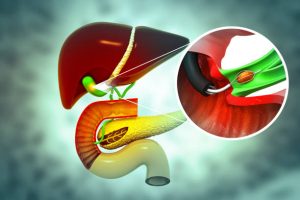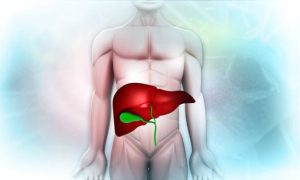
Constipation
What is Constipation?
Constipation is a common digestive issue characterized by infrequent bowel movements, difficulty passing stools, or a feeling of incomplete evacuation. It is generally defined as having fewer than three bowel movements per week.
Types of Constipation:
- Acute Constipation: Sudden onset, often due to dietary changes, medication, or dehydration.
- Chronic Constipation: Persistent constipation lasting for several weeks or longer, often requiring medical evaluation.
- Functional Constipation: No identifiable medical cause, often related to lifestyle or dietary factors.
- Obstructive Constipation: Caused by a blockage in the intestines or rectum.
Main Causes of Constipation:
- Dietary Factors: Low fiber intake, inadequate fluid consumption, and excessive intake of dairy products or processed foods.
- Physical Inactivity: Lack of exercise can slow down digestion.
- Medications: Certain medications, including opioids, antacids containing aluminum, and some antidepressants.
- Medical Conditions: Conditions like hypothyroidism, diabetes, Parkinson’s disease, or irritable bowel syndrome (IBS).
- Ignoring the Urge to Go: Habitually delaying bowel movements can lead to constipation.
- Changes in Routine: Travel, stress, or changes in daily habits can affect bowel function.
Signs and Symptoms of Constipation:
- Infrequent bowel movements (fewer than three per week)
- Difficulty or pain during bowel movements
- Hard, dry stools
- Abdominal discomfort or bloating
- A feeling of fullness or pressure in the rectum
- Straining during bowel movements
Risk Factors for Constipation:
- Age: Older adults are more likely to experience constipation due to decreased physical activity and dietary changes.
- Gender: Women are more likely to experience constipation, often due to hormonal changes.
- Sedentary Lifestyle: Lack of exercise contributes to slower bowel movement.
- Dietary Habits: Low fiber intake and inadequate hydration increase the risk.
- Pregnancy: Hormonal changes and pressure on the intestines can lead to constipation.
How to Prevent Constipation:
- Increase Fiber Intake: Include fruits, vegetables, whole grains, and legumes in your diet.
- Stay Hydrated: Drink plenty of fluids, particularly water.
- Exercise Regularly: Physical activity can stimulate bowel function.
- Establish a Routine: Set a regular time each day for bowel movements, especially after meals.
- Avoid Delaying the Urge: Respond promptly to the urge to have a bowel movement.
How Constipation is Diagnosed:
- Medical History: A detailed history of symptoms, diet, and lifestyle.
- Physical Examination: A physical exam may include a rectal examination.
- Diagnostic Tests: May include blood tests, abdominal X-rays, or colonoscopy to rule out underlying conditions.
Treatment for Constipation:
- Dietary Changes: Increase fiber and fluid intake.
- Over-the-Counter Laxatives: Fiber supplements, osmotic laxatives (e.g., polyethylene glycol), or stimulant laxatives (e.g., bisacodyl).
- Prescription Medications: In cases of chronic constipation, medications like linaclotide or lubiprostone may be prescribed.
- Enemas or Suppositories: For immediate relief, these can help stimulate bowel movements.
Home Remedies for Constipation:
- Warm Water: Drinking warm water in the morning can help stimulate bowel movements.
- High-Fiber Foods: Include prunes, apples, pears, and whole grains in your diet.
- Flaxseeds: Ground flaxseeds can add fiber and promote regularity.
- Probiotics: Foods like yogurt or fermented products can support gut health.
- Natural Laxatives: Aloe vera juice and certain herbal teas (like senna) can help.
Ayurvedic Medicine for Constipation:
- Triphala: A combination of three fruits known for its mild laxative effects and ability to promote digestive health.
- Psyllium Husk: A natural fiber supplement that can help relieve constipation.
- Ginger: Known to stimulate digestion and can be consumed as tea or in meals.
- Warm Ghee: Taking a teaspoon of warm ghee on an empty stomach may help lubricate the intestines.
Precautions:
- Consult a healthcare provider if constipation lasts longer than two weeks or if there are concerning symptoms like blood in stool, severe pain, or unexplained weight loss.
- Be cautious with laxative use; overuse can lead to dependence and worsen constipation.
- Monitor for dehydration, especially in older adults or those with limited mobility.
Self-Care Tips:
- Keep a food diary to track fiber and fluid intake.
- Gradually increase fiber in your diet to avoid gas and bloating.
- Stay active with regular exercise to promote bowel function.
- Use stress management techniques to reduce anxiety that may contribute to digestive issues.
Conclusion:
Constipation is a common condition that can often be managed with dietary and lifestyle changes. If symptoms persist or worsen, it is important to seek medical advice to identify any underlying causes and receive appropriate treatment.
Disclaimer:
The information provided here is for educational purposes only and should not replace professional medical advice. Consult a healthcare provider for proper diagnosis and treatment.
Additional Tips:
- Experiment with different types of high-fiber foods to find what works best for you.
- Consider using a stool softener if you’re having difficulty passing stools, but consult a healthcare provider first.
- Be mindful of portion sizes when increasing fiber intake to prevent digestive discomfort.








